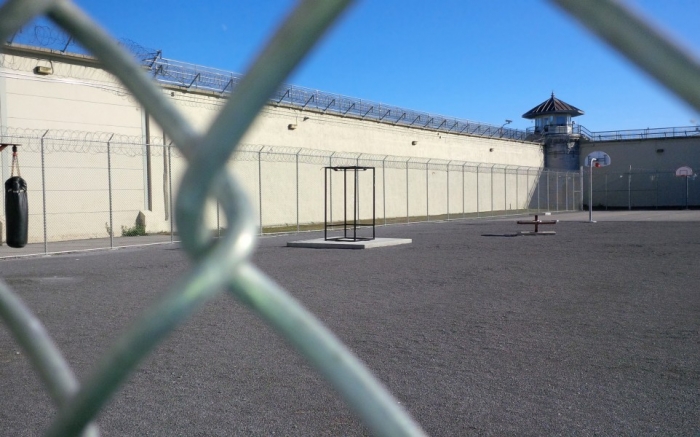You are here
Home 🌿 Marijuana Politics 🌿 The Cannabis Task Force didn't consider forgiving current offenders 🌿The Cannabis Task Force didn't consider forgiving current offenders

The fact has been cited again and again: racialized people are more likely to be arrested and jailed under Canada’s current cannabis laws. But Anne McLellan - Chair of Canada’s cannabis task force - says the country isn’t talking about that enough, writes Sarah Ratchford.
“The laws as we presently have them are inconsistently applied," the former Justice Minister told a crowded room last week at the 2018 World Cannabis Congress in Saint John, New Brunswick. "We do not talk about racialized justice in this country the same way Americans do, but of course we have racialized injustice. And we heard over and over again from African Canadians, especially youth, and Indigenous Canadians, that the existing laws are much more likely to be used against them.”
Yet the task force did not make recommendations in its final report to either ensure there is an anti-racist lens going forward, or to provide pardons for those who have been incarcerated under the existing laws. Instead, McLellansays it was the group’s job to focus on what a “regulatory regime” would look like post-legalization.
“But certainly we heard from people about the importance, for some, of a pardon and it is something that I think the Prime Minister, the premiers, and [Parliamentary Secretary] Bill Blair have been clear about — that after legalization and regulation is up and running then we’ll come back and we’ll look at what, if anything, should be done in relation to the past,” she told Civilized following her keynote address.

Some have expressed surprise that the proposed laws include provisions which could land someone in jail for up to 14 years. But McLellan is very clear that those are charges that would only be faced by criminals who sell to minors for profit. She stresses that these laws have always been about keeping cannabis away from young people.
But keeping racialized youth from being jailed unjustly could prove to be an even greater challenge.
"Our justice system has unconscious bias," McLellan told Civilized. "And we have to deal with that and we have to acknowledge that as an important issue.”
Ongoing consultation needed
The task force held consultation with Indigenous groups, but as McLellan herself acknowledges, turnout was not as high as it might have been. (“Did we hear from everybody? No. but that’s life guys, get over it,” she told the crowd Monday).
While her candor was refreshing, the fact that the task force's report mentions nothing about the role Indigenous communities will play going forward looks like the federal government is set to repeat the same old mistakes of failing to include Indigenous groups.
McLellan, who used to hold a government post called Federal Interlocutor for Métis and Non-Status Indians, says that ongoing consultation with Indigenous people is a crucial piece to ensuring Canada’s new cannabis laws are what they should be, but that it’s the government’s job to figure out what that will look like going forward.
“It is incumbent upon us to work with Indigenous communities," she said during her keynote speech. "This is a really important issue, and I think this will be really contentious as we figure out what the role of Indigenous communities will be [in the regulated market].”
Last month, the Senate Aboriginal Peoples Committee has said that consultation efforts thus have been “atrocious” and called for the process of passing the laws to be delayed for a year so that more adequate ones can take place.
Going forward, McLellan says, she thinks all three levels of government are responsible.
“I hope that, through this discussion that has taken place around the legalization of cannabis, we are Canadians develop more awareness around the fact that our justice system isn’t always fair,” she says. More training, she adds, is needed within law enforcement agencies and the judicial system.
“We’ve got a public policy that is basically pretty much a failure, and it has taken us almost 100 years to reach that conclusion,” she says. “But we’re here now.”
420 Intel is Your Source for Marijuana News
420 Intel Canada is your leading news source for the Canadian cannabis industry. Get the latest updates on Canadian cannabis stocks and developments on how Canada continues to be a major player in the worldwide recreational and medical cannabis industry.
420 Intel Canada is the Canadian Industry news outlet that will keep you updated on how these Canadian developments in recreational and medical marijuana will impact the country and the world. Our commitment is to bring you the most important cannabis news stories from across Canada every day of the week.
Marijuana industry news is a constant endeavor with new developments each day. For marijuana news across the True North, 420 Intel Canada promises to bring you quality, Canadian, cannabis industry news.
You can get 420 Intel news delivered directly to your inbox by signing up for our daily marijuana news, ensuring you’re always kept up to date on the ever-changing cannabis industry. To stay even better informed about marijuana legalization news follow us on Twitter, Facebook and LinkedIn.




